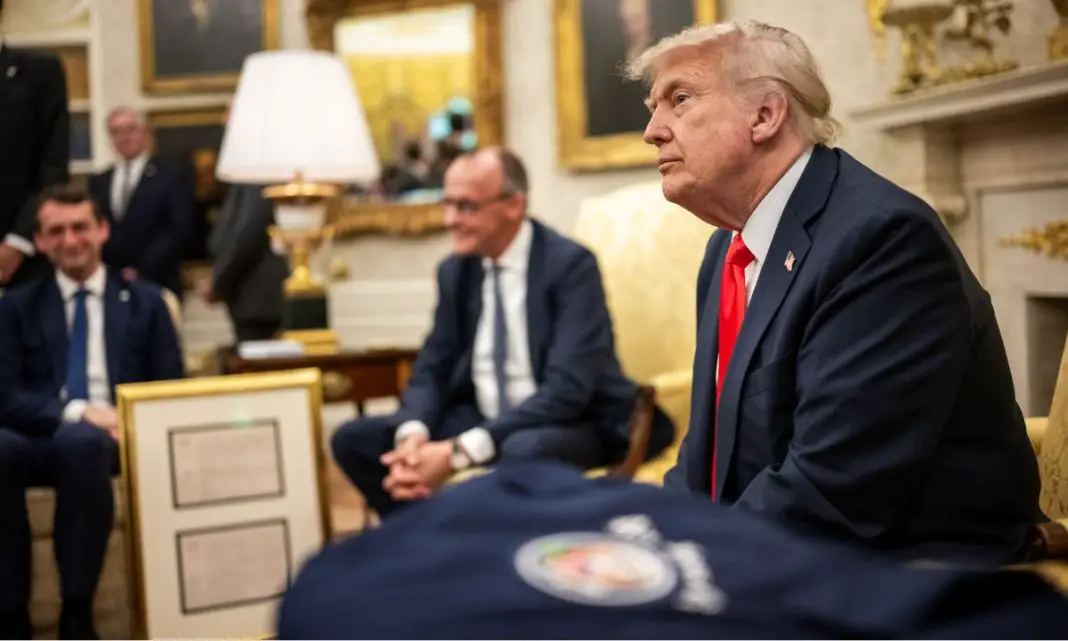President Donald Trump has been relentless in his mission to revitalize American manufacturing, with a focus on securing critical supply chains for industries like automotive, aerospace, and technology. Central to his strategy is negotiating robust trade agreements with global powers, particularly China, which holds a commanding grip on vital resources like rare earth minerals. These materials are essential for producing everything from electric vehicle motors to military equipment, and Trump’s efforts aim to reduce U.S. dependency on foreign supplies while strengthening domestic production.
In recent weeks, Trump has intensified discussions with Chinese leadership, including a marathon phone call with President Xi Jinping on Thursday, aimed at smoothing out trade tensions. His administration is pushing for fairer access to critical materials, arguing that restrictive export policies from China threaten American industries.
Trump’s hands-on approach, coupled with his vocal advocacy for U.S. workers, signals a determined effort to bring manufacturing back home while ensuring supply chains remain resilient. “There should no longer be any questions respecting the complexity of Rare Earth products,” Trump declared in a recent social media post, emphasizing the urgency of resolving these trade hurdles.
— Rapid Response 47 (@RapidResponse47) June 5, 2025
The stakes are high. China’s dominance in rare earth production—accounting for roughly 90% of the global supply—has given Beijing significant leverage in trade negotiations. Trump’s team is working tirelessly to counter this by fostering agreements that prioritize American manufacturers, ensuring they have the resources needed to compete globally.
China Reduces Restrictions on Rare Earth Minerals
In a significant development, China has issued temporary export licenses to rare earth suppliers for the three largest U.S. automakers—General Motors, Ford, and Stellantis—according to two sources familiar with the matter. This move comes as Beijing’s export restrictions, introduced in April, have begun to disrupt global supply chains, affecting industries reliant on these critical minerals.
The licenses, some of which are valid for six months, were granted to suppliers on Monday, one source confirmed. However, details about the specific quantities or types of rare earths covered remain unclear, as the sources spoke on condition of anonymity due to the sensitive nature of the information. Industry experts have described China’s rare earth licensing process as complex and restrictive, creating bottlenecks that threaten production worldwide.
The curbs have already impacted automakers, aerospace firms, semiconductor manufacturers, and military contractors, all of which rely heavily on these materials for various components. Auto industry representatives have raised alarms about the growing risks to production, given China’s near-monopoly on these resources.
The export restrictions have drawn sharp criticism from President Trump, who has accused Beijing of undermining a recent trade truce aimed at rolling back tariffs and easing tensions. U.S. automakers are already grappling with the fallout. According to Ford, they halted production of the Explorer SUV at their Chicago plant for a week in May due to a rare earth shortage, highlighting the real-world impact of these controls.
Beyond the auto sector, China has also granted export licenses to suppliers of a U.S. electronics firm last week and a non-automotive U.S. company earlier this week, according to one source, though the companies were not named. “We have to give the Chinese the benefit of the doubt that they’re working through this. It’s up to them to show that they are not weaponizing it,” the source said, reflecting cautious optimism about Beijing’s intentions.
Stellantis, one of the affected automakers, stated it is collaborating with suppliers “to ensure an efficient licensing process” and has so far managed to “address immediate production concerns without major disruptions.”
Adding to the complexity, China introduced a tracking system for its rare earth magnet sector on Wednesday, according to Reuters. This move aims to tighten oversight and curb smuggling, further consolidating Beijing’s control over a resource critical to global industries.
As Trump continues to press for favorable trade terms, the temporary licenses offer a glimmer of relief for U.S. manufacturers. However, the path forward hinges on ongoing negotiations and China’s willingness to ease its grip on rare earth exports.
Do you support Trump’s trade strategy when it comes to China? As always, let us know what you think in the comments below!


yes
I’m wary of China but I do trust that the President knows the art of the deal. Praying for success with all the tariff negotiations with all the countries involved.